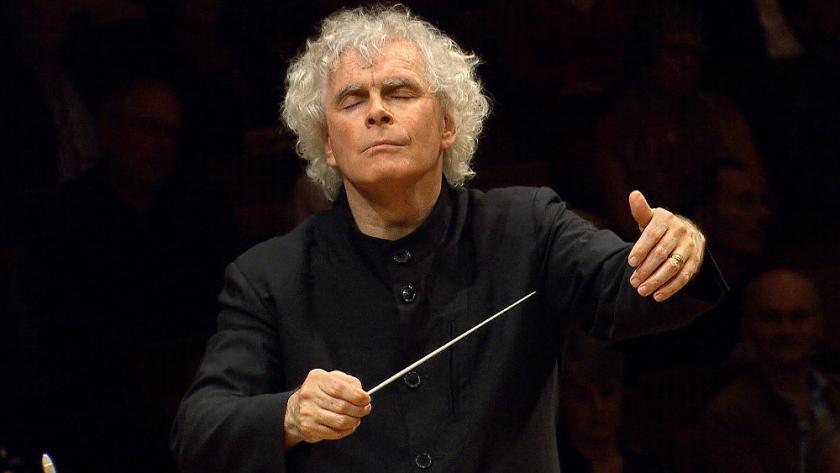It was Simon Rattle’s first visit to the Edinburgh International Festival for – well, really quite a few years. And the first of his two concerts with the London Symphony Orchestra drew, perhaps predictably, a capacity crowd in the Usher Hall, for what was in fact quite an odd, uncompromising programme – if one that ultimately delivered magnificently.
The fizzing chemistry that Rattle and the LSO players have clearly built up over their first season together was blazingly evident – not least in the concert’s gargantuan opener, Bernstein’s Symphony No. 2, The Age of Anxiety. Rattle was exceptional on the details, with a flick of his baton or a quick nod here or there to draw out inner lines and textural inflections, often leaning deeply into the strings to summon really quite a remarkably rich, detailed, balanced sound. And the orchestra’s musicians lapped it up.
Krystian Zimerman was piano soloist, and he seemed immersed in the Symphony from start to finish, even responding bodily to the sections in which he wasn’t playing. When he was playing, however, it was with a crisp, brittle pianism that seemed to clarify Bernstein’s intentions wonderfully in what can otherwise feel like a vast, sprawling work. There was an icy stillness to his opening gestures, right through to entirely idiomatic jazz and liquid cascades of notes at the work’s close, which had a gloriously transcendent, almost visionary quality in Rattle’s hands.
Nevertheless, and despite the exceptionally strong case that Rattle and Zimerman made, it’s still a strange piece of music, one that, with its collision of styles and its unconventional structure, borders at times on the unconvincing. And you had to question Rattle’s judgement, too, in playing all eight of Dvořák’s Op. 72 Slavonic Dances to kick off his second half. They were gloriously supple, brilliantly characterised, and filled with freshness and a mischievous glint of wit, but by the end of the set, it had become clear why the Dances more usually done in groups of three or four.
With nine additional trumpeters marching on to occupy some of the Usher Hall’s choir seats, it fell to Janáček’s Sinfonietta to restore the energy to pre-interval levels. And Rattle’s astonishingly vibrant, vigorous account did just that. He took the composer’s gloriously quirky, unbalanced textures at their word, with spectacularly vivid results, and with the return of the work’s opening fanfares at its stunning conclusion, the music felt just as majestic and weird as it ought to be.
- Rattle and the LSO give their second Edinburgh International Festival concert on Saturday 11 Aug
- The Edinburgh International Festival and Fringe continue until 27 August
- Read more classical reviews on theartsdesk













Add comment